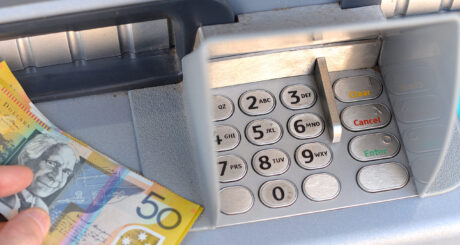Buying a car with a credit card is usually possible, but it’s not typically the most affordable way to finance a new or used car.
How to buy a car with a credit card
There are two ways to buy a car with a credit card — in-person using your card at the dealer or with an online transfer to your debit card (a cash advance).
Of course, this assumes the car dealer allows you to pay by credit card.
You’ll also want to talk with your bank and write down all the key numbers — your credit card interest rate, the number of interest-free days, your credit limit, the due date of your monthly bill, the cash advance fee and the seller’s surcharge fee. If the total cost of buying a car with a credit card is less than with a loan, inform your bank and check to see if there are other factors, like a daily transaction limit, to consider.
Credit card vs. other financing options
Car loans are notorious for charging high interest rates, but there are plenty of ways to secure finance for a new vehicle beyond the car dealership. Even banks offer specific products to get a car with competitive finance.
For example, the Westpac Car Loan offers a fixed interest rate between 5.99% – 12.99% p.a. on amounts between $10,000 to $100,000. Consumers buying electric or hybrid vehicles receive a further discounted interest rate.
But what if you already have a credit card with an available limit you’d prefer to use rather than take out another loan? It is possible, but not always preferable, if weighing up between a credit card, car loan or personal loan.
Comparing interest rates alone, here’s a snapshot of three options at Westpac (accurate at the time of writing):
- Car Loan: 5.99% – 12.99% p.a.
- Low-Rate credit card: 13.74% p.a.
- Flexi Loan: 16.99% p.a.
The credit card still isn’t the most affordable choice — and these figures are based on a low-rate card. The standard interest rate for most types of credit cards is 19.94% p.a., making it an even more costly option for the average credit card holder.
» MORE: How to decide between a personal loan and a credit card
What to consider before you buy a car with a credit card
To make the best financial decision, consider your answers to some questions. It’s not as simple as just comparing interest rates.
- How much is the car? What is your budget?
- When do you plan to pay it off?
- What is your credit card’s interest rate?
- Does your bank offer a car loan? How does the interest rate compare?
- Do you have other forms of debt?
- Do you have a good credit score?
- Does the car dealer accept credit cards? What is the credit card surcharge? A 2% surcharge on a $8,000 car will add $160 to the total cost.
It might be worth checking your credit report and calling your bank to discuss your options. If you plan to buy a car under $10,000, earn reward points and leverage the interest-free period, using your credit card could be a viable option if the dealer accepts it.
Should you buy a car with a credit card?
If the total cost of buying a car with a credit card is less than a car loan, it’s an option worth considering. Still, there are other advantages and disadvantages to weigh into your decision.
Advantages
- Convenience. You don’t have to wait for a loan to get approved if you already have a credit card.
- Earn points. If you’re using a rewards credit card, you could get thousands of points with your car purchase. If it’s 1.5 points per $1 spent, you can earn 12,000 points with an $8,000 car.
- Interest-free period. You can buy the car with $0 interest if you pay off your credit card within the interest-free period, typically 55 days.
- Half-savings, half-credit. If you don’t have $8,000 in savings or prefer not to use it all on a car, you can use your credit card to withdraw cash through a cash advance. An online transfer from your credit to debit card usually comes with a 3% surcharge and no interest-free period. That equates to a $120 fee plus the interest that starts accruing from the day of the transaction.
Disadvantages
- Availability. Only some car dealers or banks allow for credit card payments.
- Fees. There are additional fees, such as a surcharge or cash advance.
- Credit limit. You may use up most, if not all, of your card’s available credit limit, which means you can’t access it in the future.
- Credit score impact. Failure to make repayments can damage your credit score.
- Added interest. If you don’t pay off your credit card in the interest-free period, you might pay more in interest than you would with a fixed-interest rate loan.
Alternatives
- A car loan through your bank or directly with the dealership
- A personal loan through your bank
- A private loan from a family member or friend
- A business loan if you’re going to use the car for work (to access tax savings such as the instant asset write-off and temporary full expensing)
- An employer agreement such as a novated lease
- Redrawing on an existing loan
- Your savings.
Like a house and a holiday, a car is one of the more significant financial purchases you’ll make, so avoiding snap decisions is wise. The choices you make now will affect you in the years to come.
DIVE EVEN DEEPER

Types Of Personal Loans You Should Know
There are many types of personal loans to choose from — and some to be wary of — with varying interest rates, fees and term lengths.

Secured Vs. Unsecured Personal Loans
A secured loan requires collateral, wheres an unsecured does not. Unsecured loans may have stricter qualification requirements than secured loans.

Can You Withdraw Cash From A Credit Card?
You can withdraw cash from a credit card at an ATM or through an online transfer, but it’s a cash advance with higher fees and interest.

Credit Card Fees: What They Are And How To Avoid Them
Credit card fees can vary among providers. Find which charges are inescapable and which ones you can avoid.

